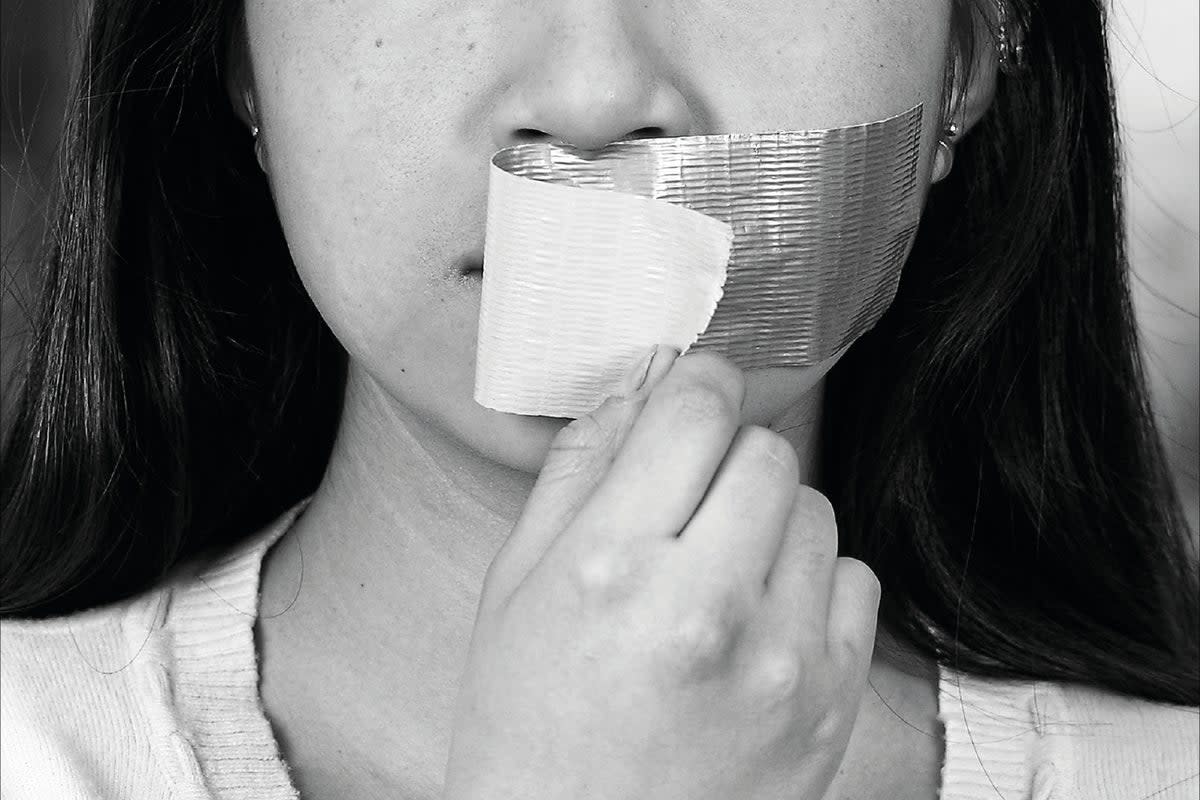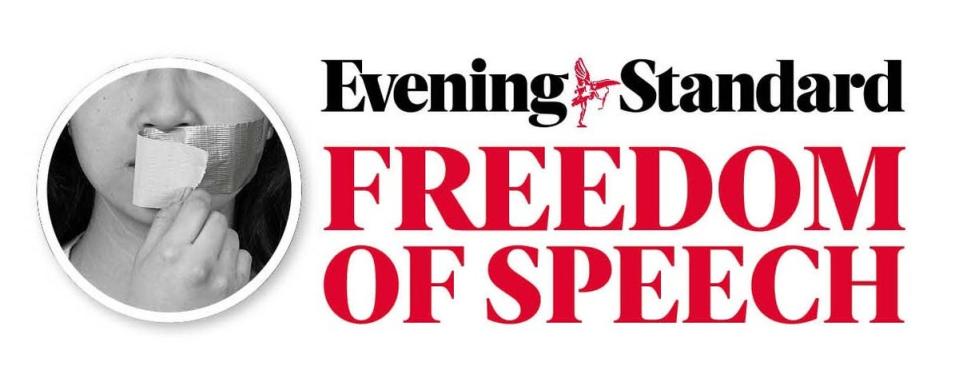OPINION - Torture, prison, even murder... the threats faced by our free press

In 2022, a team of journalists from the Associated Press became trapped in the besieged Ukrainian city of Mariupol.
As they struggled to continue working amid the Russian bombardment, they became increasingly aware how important their presence was. The only international news crew left in the city, the team captured images that told the real story of what was happening — including the bombing of a maternity hospital that the Russians argued was fake. For the people remaining in Mariupol, the AP crew were not just witnesses, they were a lifeline: providing information to the outside world that could bring crucial assistance, and bringing information back to a community cut off from communication.
As Mstyslav Chernov, a member of the AP team, told an award ceremony last year: “People didn’t know what was going on in the nearby village. People came to us because they saw the PRESS sign and asked: ‘Is Kyiv still standing?’, ‘Is Odesa captured or not?’, ‘What about Kharkiv, do I have relatives there?’. And they were waiting for answers from us. I tried to give them those answers. Then I realised that sometimes some news and information is more important for people’s survival than food.”
Information is power. For us to tackle injustice, we need to know that injustice is taking place — we need to understand who is responsible and who is affected. For us to effect change, we need to know the change that is needed — and to be able to articulate the need for such change. That is why freedom of speech is — in my view — an absolutely fundamental right. Without the right to speak and publish freely, not only are we deprived of the right to know — the right to know how our waterways are being polluted and by whom so we know whether water is safe to drink or to swim in; the right to know whether a drug is safe for use; the right to know how our elected leaders and public officials are spending our money — but we are also deprived the right to demand better.
For more than a decade I have been defending the right for individuals to speak freely. I do so because I have seen first-hand what happens when we try to adjudicate on good and bad speech in all but the most narrow of circumstances. I have met activists and journalists beaten, tortured and jailed for their work: journalists like Mohammad Mosaed — an Iranian journalist arrested during nationwide protests and who fled the country in 2020 after months in solitary confinement rather than face a four-year prison sentence: a perilous mountain journey in which at one stage he recalls seeking out a spot where his body might be found.
I have encountered countless journalists forced into exile rather than face the threat of death and imprisonment at home. Journalists like Galina Timchenko, founder of Russian news outlet Meduza, who fled to Riga in 2014 after the first Russian invasion of Ukraine, and from where — without fear of arrest or financial penalty — she can freely call the current invasion exactly what it is: a “war” (which is banned in Russia).

And I have met the friends and loved ones of those killed for their work. Individuals like Cameroonian journalist Martinez Zogo — the host of a daily current affairs radio programme who reported on corruption involving prominent business people and government officials — whose mutilated body was found earlier this year dumped on an empty plot of land days after he was kidnapped outside a police station as he sought help.
All are individuals whom authorities accuse of providing the “wrong kind” of information and, without whom, the public would lack a full and independent picture of abuses of power, corruption and wrongdoing.
I did not set out to be a free speech campaigner. I am a journalist by profession. I became a journalist for the same reason that I now advocate for freedom of speech: because without the right to speak freely, the right to tell stories that others do not want to be told, the right to call out abuse and wrongdoing, we cannot be free.
And, increasingly, we are not. Democracy is on the decline. A report published earlier this year by the V-Dem Institute at the University of Gothenburg showed that advances made in global democracy over the past 35 years had been wiped out, and that 72 per cent of the world’s population now live in autocracies. One of the first, and leading, indicators of that democratic decline is the growing attacks on journalists: those who use the right to freedom of expression to expose the backsliding. “Aspects of freedom of expression and the media are the ones ‘wannabe dictators’ attack the most and often first,” the report’s authors wrote.
At the Committee to Protect Journalists, the US-based non-profit organisation I now run, we see this every day. Last year a record 363 journalists were in jail worldwide. (The number arrested and released is far higher and is truly
a global problem — as the unlawful arrests of journalists covering climate change protests last year in the UK showed). The number of killings jumped 50 per cent on the previous year. Most of those killings took place outside war zones, in supposed democracies such as Mexico. One of those killings took place in the United States. Journalists are also routinely surveilled, and harassed online and off.
Most of those facing such harassment are local journalists, they are women, people of colour and those from marginalised communities working away from the national spotlight on stories essential to their local readership. The use of legal threats, particularly those involving charges seemingly unrelated to a journalist’s reporting, are on the rise.
The charges against British citizen and Hong Kong-based media entrepreneur Jimmy Lai are a case in point. Hong Kong has brought numerous charges against Lai, who published the now defunct Apple Daily newspaper, since 2020 including those of fraud and collusion with foreign powers. To date, the UK government — which burnished its credentials as a defender of free speech by founding the Media Freedom Coalition in 2019 — has done little in Lai’s defence.
Like any profession, journalists get things wrong. But the vast majority are working for little pay, outside the limelight, patiently, accurately shedding light on issues affecting local communities — and bringing about change. An investigation by Manchester Evening News reporter Jennifer Williams, for example, that found councils were placing families in flea-ridden guesthouses, led to an emergency review, a promise from the mayor of Greater Manchester Andy Burnham to buy slum properties, and prompted the Office for National Statistics to start recording the deaths of the homeless.
Free speech is not just having the right to speak and publish freely. It also rests on everyone having the ability to do so. This means investing in local media and in ensuring platforms treat everyone equitably when they express themselves — including those whose views and ideas we might find offensive.
If journalists, if any of us, are prevented — through abuse of law, through verbal and physical threats, through violence, imprisonment and murder — from speaking truth to power, then we are all diminished.
Jodie Ginsberg is president of the Committee to Protect Journalists
We want to draw on the experiences of a wide variety of individuals in our free speech inquiry. If you have a story to tell please email: freedomofspeech@standard.co.uk


